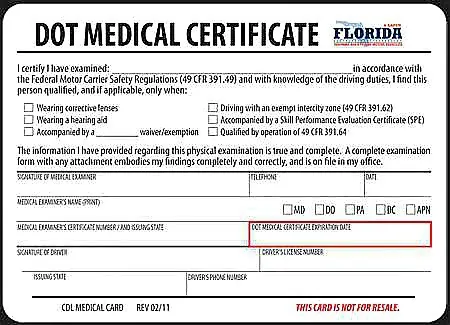Want to break into the booming trucking industry? Learning how to become a broker for trucking can open doors to a rewarding, independent career with high earning potential. Whether you’re exploring a new path or looking to start your own business, this comprehensive guide is designed for aspiring freight brokers ready to take the leap. In the next sections, we’ll break down what a freight broker does, how to get licensed, and the tools you’ll need to thrive in the U.S. logistics space.
What does a freight broker do?
Freight brokers play a critical role in the logistics industry by connecting shippers with carriers to ensure the smooth transport of goods. They act as intermediaries and problem-solvers, helping both parties save time and money.
Key responsibilities include:
- Negotiating Rates: Secure competitive pricing for shippers and fair pay for carriers.
- Tracking Shipments: Monitor freight in real time to ensure on-time delivery.
- Managing Paperwork: Handle bills of lading, invoices, and compliance documents.
- Resolving Issues: Address delays, damages, or disputes between parties.
Freight brokers don’t own trucks or cargo—they rely on strong networks and communication skills to keep freight moving efficiently.

How to become a broker for trucking?
Ready to launch your career? Here’s a step-by-step breakdown of how to become a broker for trucking in the U.S.:
Step 1 – Gain Industry Knowledge and Understand Requirements

Before diving into the world of freight brokerage, it’s essential to build a solid foundation of industry knowledge. Understanding how the trucking and freight industries operate will prepare you for the responsibilities and regulations that come with being a broker.
- Learn how freight brokers connect shippers with carriers
- Understand industry terminology, logistics workflow, and compliance expectations
- Study state and federal requirements, especially those from the FMCSA
- Explore training options such as online courses or community college programs
- Talk to experienced brokers or join industry forums for real-world insights
Step 2 – Register Your Business and Obtain an EIN

To operate legally, you must establish your brokerage as a business entity. This not only adds credibility but also separates your personal and business finances.
- Choose a structure such as sole proprietorship, LLC, or corporation
- LLCs are often preferred for their liability protection and tax flexibility
- Register your business name with your state’s Secretary of State
- Apply for an EIN (Employer Identification Number) from the IRS website for tax purposes and to open a business bank account
- The EIN application is free and can be completed online instantly
Step 3 – Apply for a USDOT Number (If Required)

Freight brokers don’t usually operate trucks, but depending on your services or state regulations, you may still need a USDOT number.
- A USDOT number is typically required if you’re also acting as a motor carrier
- Check requirements with the FMCSA and your local Department of Transportation
- Some brokers offering asset-based services may need this registration
Step 4 – Obtain Your Broker Authority (MC Number)

To legally operate as a freight broker, you must receive authority from the Federal Motor Carrier Safety Administration (FMCSA).
- Complete and file Form OP-1 through the FMCSA’s Unified Registration System
- Pay a $300 application fee
- You’ll receive an MC (Motor Carrier) Number used to track your brokerage license
- The process can take 4 to 6 weeks, depending on approval and processing
Step 5 – Secure a Surety Bond (BMC-84)

The FMCSA requires all freight brokers to carry a surety bond to ensure financial responsibility in case of disputes or claims.
- The BMC-84 bond guarantees your ability to pay carriers and fulfill obligations
- You can work with bond providers like JW Surety Bonds or SuretyBonds.com
- Annual premiums usually range between $900 and $2,000, depending on creditworthiness
- Alternatively, you can use a trust fund (BMC-85), but this requires $75,000 in cash collateral
Step 6 – Designate a Process Agent (BOC-3 Form)

The FMCSA requires brokers to file a BOC-3 form, which designates legal agents in each state where you conduct business.
- A process agent handles legal documents in case of court proceedings
- You must file BOC-3 before receiving active authority
- Many third-party services offer filing for $20–$50, and some include all 50 states
- Make sure the agent is authorized to operate in all required states
Step 7 – Develop a Business Plan

Now that your legal groundwork is complete, it’s time to focus on building a roadmap for growth. A strategic business plan helps guide your decisions, attract clients, and stay competitive in the fast-paced freight industry.
Key components of your plan should include:
- Executive Summary – What your brokerage does and your goals.
- Market Research – Industry trends, competition, and target shippers.
- Services Offered – Will you specialize in dry van freight, reefer loads, or flatbeds?
- Marketing & Sales Strategy – How you plan to find shippers and build a network of reliable carriers.
- Operations Plan – Your tools, staffing (if any), and workflow.
- Financial Forecasts – Projected income, expenses, and profitability timeline.
This isn’t just a document for banks or investors—it’s your playbook for daily decision-making and long-term success.
Step 8 – Use Load Boards and Build a Carrier Network

Once you’re legally authorized to operate, you’ll need to find loads and connect with reliable carriers.
- Use load boards such as DAT and Truckstop to match freight with carriers
- Establish ongoing relationships with shippers and reliable drivers
- Maintain a CRM system to track leads, loads, and carrier details
- Focus on customer service and communication to build long-term trust
FAQs
1. Is becoming a freight broker worth it?
Absolutely—especially if you’re self-motivated and organized.
- High income potential with the national average salary around $60,000+ per year, according to Indeed.
- Work-from-home flexibility
- Low startup cost compared to other businesses
2. How do trucking brokers make money?
Trucking brokers make money by acting as intermediaries between shippers and carriers, and profiting from the difference.
Here’s how their income breaks down:
- Charge shippers a fee to arrange freight transport.
- Pay carriers a portion of that fee to move the load.
- The margin between the two is their profit, typically 3–8% or 10–20%, depending on the shipment.
- Some brokers earn commissions based on the total freight cost.
- Extra income comes from value-added services like insurance or route planning.
- Skilled brokers negotiate better rates, increasing their profit while helping shippers save.
3. How much does freight broker training cost?
Freight broker training costs can vary based on the type of program and provider:
- Online courses typically range from $300 to $1,500, offering flexibility and self-paced learning.
- Community colleges and accredited institutions may charge $1,000 to $2,500, often including a certificate upon completion.
- There are also free webinars and educational resources from platforms like Truckstop and DAT, which are great for getting started or supplementing paid courses.
4. How much do brokers make per load?
Freight brokers typically earn 10% to 35% commission per load, depending on experience and negotiation skills. On average, most brokers make around a 15% margin. So, for a $1,000 shipment, a broker might earn $150 in profit.
Final Thoughts
How to become a broker for trucking boils down to grit, strategic networking, and mastering logistics tech. While the startup phase demands hustle, the payoff—financial freedom and industry influence—is unparalleled. Ready to steer your future? The highway to success starts with your first load.



